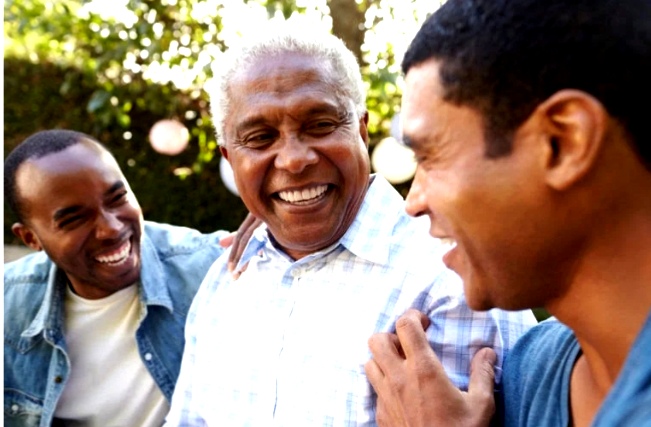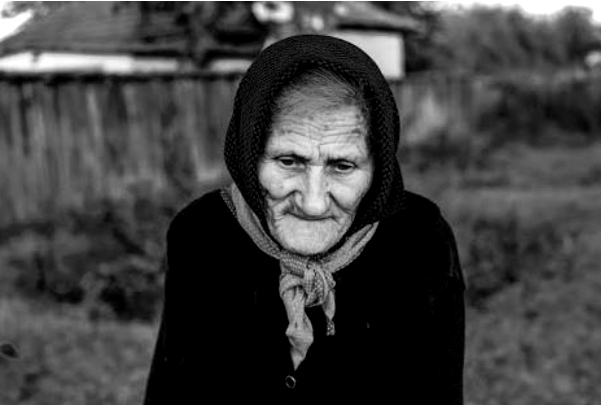We all hope to live very long but we also dread being so old. We want to see our great-great-grand-children but we don’t want to live so old that we have to be cared for as children again. Aging is characterised by a huge decline in the body’s functioning (physically and mentally) and increased dependence.
Strictly speaking, the cut off age for the elderly is greater than 65years. What makes this a very peculiar group is that apart from the normal mental and physical decline, they are more prone to suffer from various diseases that impair their cognition like dementia, their movement like athritis, their control over urination and fecal spincters like cancer and so many others.

Caring for the elderly can be difficult, even frustrating. It requires the care giver to have certain attributes like patience and a tender heart. Sadly, elder abuse has been increasing in prevalence, as life expectancy has increased. Abuse happens in houses, even in nursing homes and care facilities. In fact, after the young adult population, the elderly are the next most likely group to commit suicide. How then do we care for the elderly?
FEW FACTORS TO CONSIDER IN CARING FOR THE ELDERLY INCLUDE
1) NUTRITIONAL NEEDS
Meals should be planned around the health needs and specifications of the person. It is also important to bear in mind that the elderly have weaker teeth and that should also be put into consideration. A healthy range of food and diet supplements should also be incorporated into their meals. Food types that are high in folate, omega 3 fatty acid and other essential nutrients have also been linked to improving memory and brain functions. Also, the elderly may not eat as fast as a younger person and are usually more clumsy. So, patience is important.
2) COMMUNICATION NEEDS.
Learning to speak their language in a calm and reassuring manner tends to build their trust in you. It is not ideal to always hush them off, or ignore whatever ‘secrets’ they share with you. Sometimes, listening to whatever they say whether it seems sensible to you or not is all you have to do. You could also help by talking to them about their old pictures, journals and asking them to tell you stories from their past. Also, family has a huge role to play. Elderly people who have their families around them frequently typically live longer with less morbidities.
3) SECURITY NEEDS.

While they might love to explore and wander away, it is usually important to protect them. Although, restraint is not advised. Having security measures in place to prevent them from wandering away, or from any threat or harm that might likely come to them is very important.
4) HOUSING AND OTHER LIVING CONDITIONS
It is usually more advisable they live in a familiar environment than dumping them in a far away nursing home. Studies show better memory retention in elderly people who still live in their homes as compared to their counterparts in nursing homes.
5) GENERAL HYGIENE AND PHYSICAL CARE
As people age, they generally begin to lose interest in their appearance. It is therefore pertinent they are taken care of. Schedule days to wash their hair, trim their nails, sew or change torn clothes, etc. Above all, involve them in anniversaries, birthday celebrations, grocery shopping and traveling, as they are all memories that can be built and held on to .
In conclusion, aging could be a rewarding phase of life if it is well maximised. It should not always connote suffering, sickness, disease or despair.

Brenda Chinwe Orie is a Nigerian Registered Nurse and Midwife.
She holds a degree in Nursing Sciences which she obtained from the Prestigious Abia State University with flying colors in 2013.
She uses her storytelling and creativity skills on her #NurseB community on Facebook where she teaches health behaviors using relatable Bedside experiences.
She had championed health courses such as #TheNurseBhealthybaby contest (An annual online contest for babies), #NurseBHomecarekit (A mini first aid kit for homes); the latest in her stables, #TheNurseBpregnancyjournal (A memoir for documentation on pregnancy).
She lives and works in Lagos, Nigeria.
